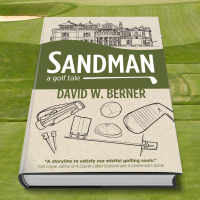

When is it too late to start writing?
Ask a silly question and you’ll get a silly answer I was told as a child. So is that a silly
question? Is the obvious answer it’s never too late? I wonder…
I started my novel The Peacemaker in my late fifties. I wrote the first few chapters as
part of my dissertation for a Master’s in Creative Writing and graduated aged 59. In
2016, aged 60, I had a first draft, then a final draft in 2017. In 2018 I found a
publisher, Top Hat Books, who published my novel in 2019, shortly after my 63 rd
birthday.
Despite that, or perhaps because, the median age for novelists is mid thirties there is
a growing interest in older writers, with new prizes springing up for first novels
published not just after forty, but after sixty. Having said that, in any list you will find a
significantly higher number of debut authors under 35 than you will over 60, and
significantly more prizes and awards to support younger people in their careers.
It is a bit obvious why, isn’t it? Most people who want to do something passionately
from an early age, start as early as they can. If you know you want to be a writer at
school, you’ll do an appropriate training and find a way to get your work noticed. If it
is noticed, and the publishing industry thinks you are a good bet, then being young is
an advantage. You’ll have lots of years to write lots of books, stories and who knows
what else.
So why start late? Well, some people don’t know they want to write from an early
age or they believe (often because people tell them) they should do something more
practical, more lucrative, more realistic. Depending on your background this can be
anything from plumbing or nursing to accountancy or law. For some kids, having a
job or an income at all will be a success – unless you have somebody to support
you, how can you start a writing career without another job.
The Author’s Licensing and Collection Society publishes a regular survey of writers’
earnings which shows that in 2017 most writers earned less than £10500 from their
published work, supplementing this with other paid work, such as teaching or editing.
Only 13.4% of writers make their living solely from writing. If you come from a
working class background, you don’t have people who can support you to get
established enough to earn money, so writing has to be fitted in around another job,
another career.
This was certainly an issue for me, the daughter of a coalminer and a factory worker,
though as significant, I think, was self-confidence. I did well at school from the age of
five until I went into sixth form to do my A levels. Then, I was presented with a series
of challenges that included family illness and depression, as well as an inability to
adjust to the more independent study A levels required. I had relied on being bright
enough, but at that point it wasn’t actually enough and I didn’t really work out how to
do it.
So, I sort of gave up, or at least lowered my ambitions, and my parents who had no
experience of university level education at all, had nothing to suggest. I tried teacher
training, which was easy to get into in the early 1970s, but I wasn’t committed to it as
you should be, so I tried to get on to a drama degree but couldn’t get the course I
wanted. I was offered English and Drama at a good university, but I didn’t have the
confidence to take the offer because I had a middling grade A level English. I still
regret that decision, despite going on to do a social science degree and having a
successful public sector career.
It’s hard to live with regrets, so you have to go back and try again. Which is why, at
the age of 57 I applied to do a Master’s in Creative Writing. I had been writing all this
time – over 40 years - doing evening classes or a residential course now and again,
publishing a few poems in magazines and anthologies. But I had an idea for a novel,
and I felt I needed to go back and start where I wished I had been when I was young.
Of course it is never too late to start writing. It is hard though, to start a writing career
late. There are many issues to face, not least energy and stamina (shouldn’t I just sit
back and read in retirement?). Another issue is currency – I worry that I am not up to
date with what’s new, that I’m history, that I don’t know all the tricks to Twitter.
Perhaps that’s why I’m writing historical fiction, yet my themes are all reflected in the
headlines of today – sexual assault, mental illness, PTSD, disadvantage
experienced by women in society. I also feel a bit guilty, that I am trying to occupy
space which younger people might fill, take their jobs.
But, although writing is indeed a job, it is also a position, a voice, a way of being. I
didn’t find my way all those years ago, so I won’t blame myself for doing it now.
Praise for The Peacemaker
Naomi Booth | author of Sealed: The Lost Art of Sinking
Janet Dean Knight writes with care and exquisite precision about the details of working-class lives. Her writing is full of the lyricism and beauty, as well as the deep griefs, of everyday life. The Peacemaker brings the past into new focus, and makes the seemingly ordinary glitter in extraordinary ways.
The Peacemaker - Available now in paperback and e-book
Categories:
0 comments on this article








